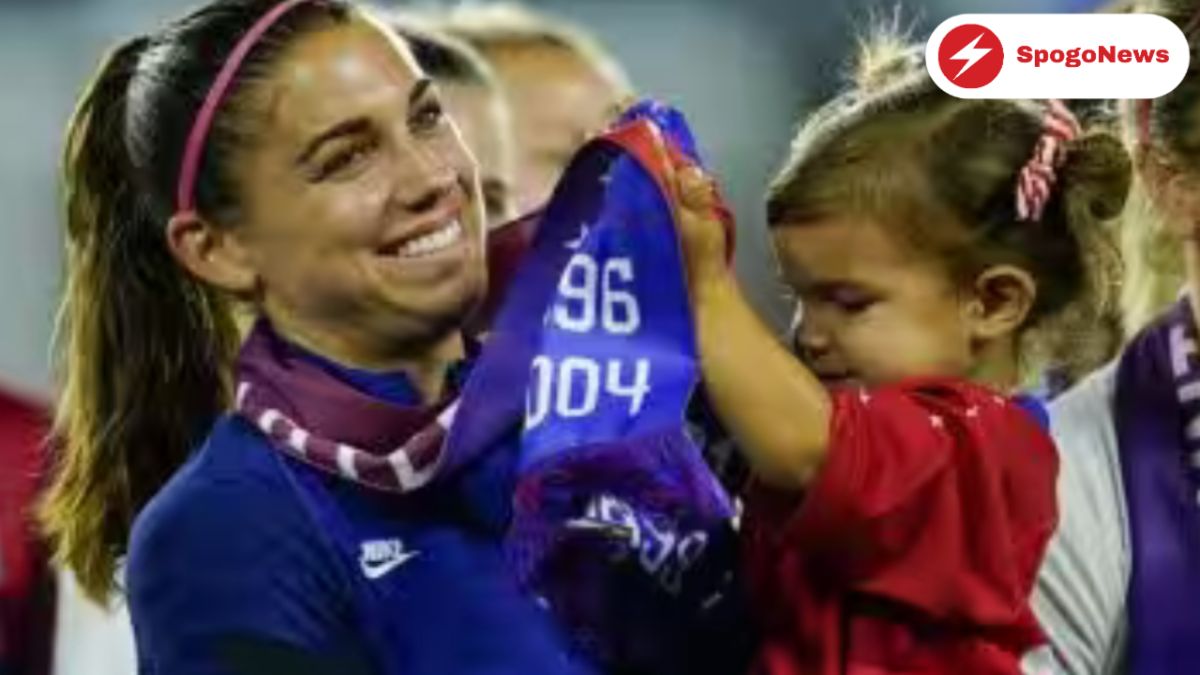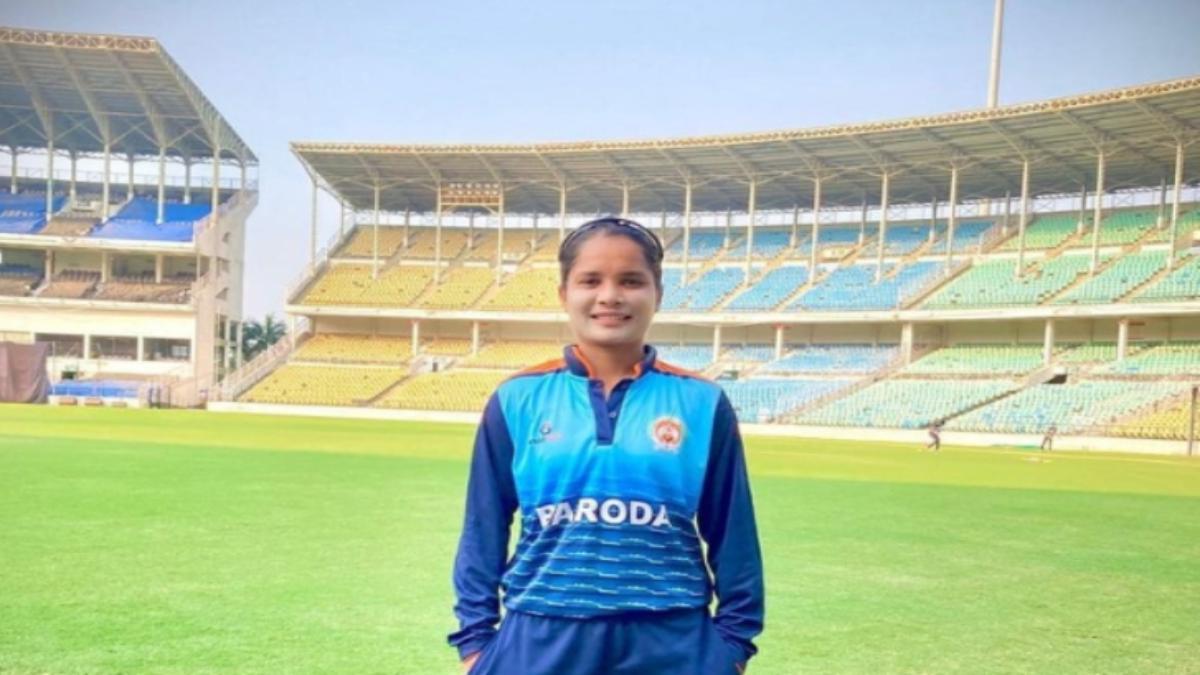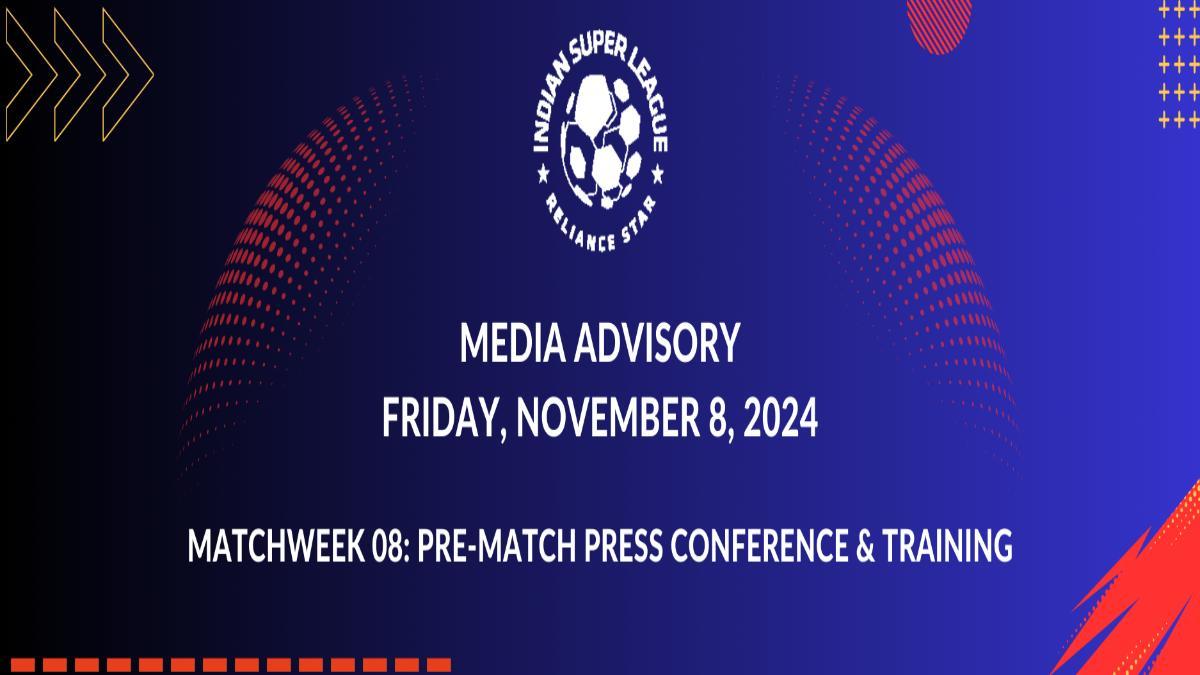(Football News) While conversing with reporters during the Women’s World Cup, Alex Morgan found herself needing to briefly step away to Facetime her young daughter, who was about to go to bed back home in the United States. It was just another instance of the daily routine for a working mother.
The conventional idea of orange slices is being overshadowed by the experiences of women players like Morgan, Australia’s Katrina Gorry, and Jamaica’s Cheyna Matthews, who are reshaping the concept of a “soccer mom.” Numerous high-level athletes have previously balanced parenthood and their careers, yet the level of support provided to these women’s while actively participating in the Women’s World Cup is progressively improving.
Morgan’s daughter, Charlie, has now become a part of her mother’s journey at the World Cup, as the United States prepares for a Round of 16 showdown against Sweden in Melbourne, Australia, on Sunday.
Morgan has taken time for introspection as she navigates the roles of both a parent and a player in soccer’s grandest international tournament. Looking back to 2019, when the United States secured its second consecutive World Cup championship and fourth overall, her daughter Charlie, now three years old, had not even entered the world.
Now, with the addition of her daughter, the American soccer star has had to harmonize her professional responsibilities with the mission of leading the United States to an unprecedented third consecutive World Cup victory.
“My approach has become more patient, not only with my daughter but in various aspects of life. Yet, the most significant aspect is that I’m able to have my daughter accompanying me. Throughout these journeys, I can demonstrate to her what mom accomplishes and surround her with a multitude of empowered and confident women,” Morgan expressed.
Within the U.S. squad, three players are mothers: Morgan, Crystal Dunn, and Julie Ertz. Beyond the American team, several other participants in this World Cup are also mothers, including Konya Plummer of Jamaica, France’s Amel Majri, Argentina’s Vanina Correa, and Germany’s Melanie Leuopolz.
Since their victory in the 2019 World Cup, Morgan, Ertz, and Dunn have each embraced motherhood, and their experiences are enriched by the strides made by earlier players to ensure that both mothers and their children receive adequate support while representing the United States on the international stage.
For a span of 25 years, the U.S. women’s team has benefited from subsidized child care during tournaments. Recently, these advantages were extended to the men’s team as well, thanks to collective bargaining agreements established with U.S. Soccer last year. These agreements not only ensured equitable pay between the two national teams but also parity in the benefits they receive.
Goalkeeper Matt Turner, who brought his wife and son to the men’s World Cup in Qatar late last year, emphasized the importance of parity: “Equality was a significant focus for both the men and the women. We were clear about that from the beginning. We will certainly take advantage of the various benefits that the other team might have had.”
Amel Majri, who has a 1-year-old daughter named Maryam, brought her child along to a training camp in April. The presence of her daughter was accommodated by French coach Herve Renard, reflecting the supportive environment created for mother-athletes.
“There is a need for well-organized facilities, including a nanny. This arrangement won’t impact the team negatively, and from a psychological standpoint, it holds immense significance. The association between a peaceful state of mind and optimal performance is crucial. We acknowledge that assistance should be provided, and we’ll manage these aspects as they are done in the USA. Perhaps in the future, we may even have four or five kids among us, and if things function seamlessly, it won’t pose any issues,” Renard explained. “Progress is to be achieved in terms of support.”
FIFA took substantial steps in 2020 to safeguard the rights of women who choose to become parents. These measures include mandatory maternity leave of at least 14 weeks and continued payment at a minimum of two-thirds of their salary. Clubs are obligated to ensure the reintegration of female players after childbirth, along with providing necessary medical assistance.
“FIFA’s aim is to prevent any female player from facing disadvantages due to motherhood, thereby enhancing employment protection for women in football,” FIFA declared while introducing these new regulations.
While all the American players have their children with them at the World Cup, some opt to leave their kids at home.
“Being a mother and leaving them behind is undoubtedly challenging, but ultimately it’s a personal decision to be present here. They are experiencing this journey from home, and they didn’t express a desire to be here,” noted Correa, Argentina’s goalkeeper and a mother of twins. “They’ve expressed their pride in my presence here. I’m aware they’re with me, and their presence provides me with the motivation and determination to be here.”
The presence of mothers at the World Cup is helping demonstrate that combining parenting with soccer is indeed feasible, although some individuals are slower to grasp this concept. A television commentator faced criticism for remarks made about Gorry, who underwent IVF treatments and welcomed her daughter, Harper, into the world in 2021.
“Undoubtedly, motherhood has not dulled her competitive instincts,” remarked the Australian commentator during the Matildas’ first match of the tournament against Ireland.
Also Read: Mohun Bagan deliver five-star show, blank Bangladesh Army FT 5-0 in Durand Cup opener














